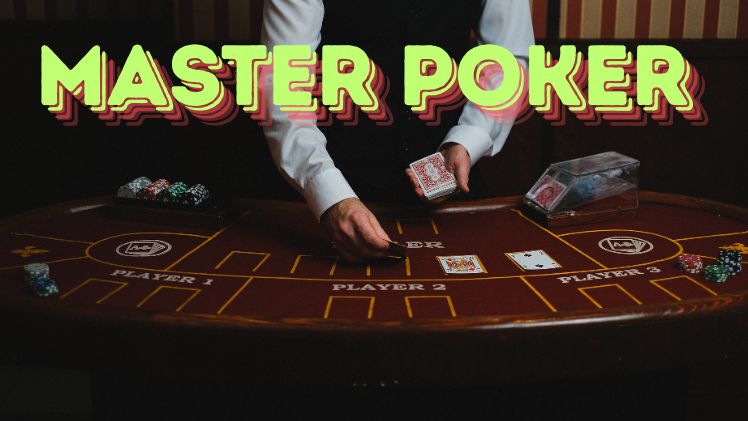
Becoming a master poker player is not just about learning the rules or memorizing strategies — it’s about personal transformation. Mastery in poker requires discipline, self-awareness, and consistent improvement over time. Every successful player has gone through a journey of growth, turning weaknesses into strengths and developing a sharp, strategic mindset. If you’re ready to take your game to the next level, these essential steps will guide you toward becoming a true poker master.
Master the Fundamentals of Poker
The first step to becoming a master poker player is building a solid foundation. You must understand the rules, hand rankings, and basic strategies like pot odds, position, and betting patterns. Knowing the math behind each move helps you make logical and profitable decisions. Focus on learning essential concepts such as expected value (EV), equity, and risk-reward ratios. The stronger your grasp of poker fundamentals, the easier it will be to develop advanced strategies later.
Develop a Strategic Mindset
Poker is a game of strategy, not luck. Master players think several moves ahead and make decisions based on probabilities, not emotions. Start by learning how to analyze situations, anticipate opponents’ reactions, and adapt to changing dynamics at the table. Avoid being predictable — mix up your playstyle to stay unreadable. The more strategic your thinking becomes, the more control you’ll have over every hand you play.
Learn to Manage Your Bankroll
Bankroll management is a critical aspect of long-term poker success. Even the best players face losing streaks, and without proper bankroll control, those downswings can wipe you out. Set aside a dedicated poker fund separate from your personal finances. Never risk more than you can afford to lose in one session. A general rule of thumb is to keep at least 20–30 buy-ins for your current game level. Smart bankroll management keeps you in the game long enough to capitalize on your skills and experience.
Strengthen Emotional Control
Emotions can be your biggest enemy at the poker table. Frustration, fear, and greed lead to poor decisions — a phenomenon known as “tilt.” To become a master, you must control your emotions regardless of the game’s outcome. Practice patience, mindfulness, and emotional detachment from results. Treat every hand as an independent decision rather than part of a streak. By staying calm and objective, you’ll maintain consistency and clarity even under pressure.
Study and Analyze Every Session
Learning doesn’t stop when the cards are dealt. After every game, take time to review your performance. Use hand history tools or poker tracking software to analyze key moments, identify mistakes, and understand your opponents’ tendencies. Many master players dedicate as much time studying as they do playing. This process of reflection turns every mistake into a lesson and accelerates your growth as a player.
Learn from the Pros
Observing and studying professional poker players can give you valuable insights into high-level strategy and mental toughness. Watch live streams, read books, and join online forums or poker communities. Try to understand how pros make decisions and manage different situations. However, don’t just copy them — adapt their techniques to your style. True mastery comes from learning, experimenting, and refining your own approach.
Adapt to Different Game Styles
No two poker games are the same. Cash games, tournaments, and online play all require unique strategies. A master poker player knows how https://masterpoker8.com/ to adjust their approach based on game type, stack sizes, and player tendencies. Study different formats and practice adaptability. The more versatile you become, the more dangerous you’ll be against any type of opponent.
Build Mental and Physical Endurance
Poker can be mentally and physically demanding, especially during long sessions or tournaments. Maintaining focus for hours requires discipline and stamina. Develop healthy habits — get enough sleep, eat well, and exercise regularly. A strong body supports a strong mind. Endurance ensures you can stay sharp and make optimal decisions even after extended play.
Stay Consistent and Patient
Transformation doesn’t happen overnight. Becoming a master poker player is a journey filled with challenges and learning experiences. Stay consistent with your practice, study regularly, and maintain realistic expectations. Every professional started as a beginner, but what separates them is persistence. Over time, consistent effort leads to mastery and long-term success.
Maintain a Growth-Oriented Mindset
The best poker players never stop improving. They treat every game as a learning opportunity and constantly seek ways to evolve. Adopt a growth mindset — embrace mistakes, stay curious, and welcome challenges. The moment you think you’ve mastered poker is the moment your progress stops. Continuous learning is what keeps you ahead of the competition.
Conclusion
Transforming yourself into a master poker player requires more than skill — it demands mindset, discipline, and dedication. Learn the fundamentals, master strategy, control your emotions, and study relentlessly. Stay adaptable, manage your bankroll wisely, and approach every game as a chance to grow. With patience and persistence, you’ll not only improve your performance but also develop the confidence and resilience of a true poker master. The path may be long, but the rewards — both in skill and success — are worth every step.